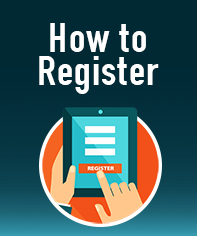ONLINE SUPPORT GROUP UNTUK CAREGIVERS KELUARGA
Abstract
Abstrak
Sebutan “Caregivers” di Indonesia masih asing dibanding dengan negara lain. Mereka juga belum mendapat perhatian sepenuhnya dari masyarakat. Padahal, 85% pemberi perawatan kepada pasien adalah caregivers keluarga. Sehingga dapat digarisbawahi bahwa peran caregivers keluarga dalam merawat pasien dengan penyakit kronis adalah sangat penting. Tidak dapat dipungkiri, kemungkinan mereka mengalami berbagai permasalahan, stress, cemas, khawatir, dan terbebani akan kondisi pasien dengan penyakit kronis. Maka dari itu perlu adanya sebuah wadah yang dapat menampung permasalahan yang mereka hadapi, seperti pembuatan group baik secara ketemu langsung atau online. Tujuan penelitian ini adalah untuk mengidentifikasi kebutuhan caregivers keluarga dari pasien dengan penyakit kronis tentang online support group (OSG). Metode penelitian yang digunakan adalah metode deskriptif dengan pendekatan cross sectional study dengan jumlah responden sejumlah 97 orang. Hasil penelitian menunjukkan bahwa (56,7%) caregivers keluarga menyatakan pentingnya support group, (57,7%) memilih untuk bertemu langsung dibanding online group, (70,1%) bersedia untuk tergabung dalam OSG, dan (80,5%) memilih WhatsApp sebagai media yang sering digunakan. Sehingga dapat disimpulkan bahwa temuan pada penelitian ini sangatlah menarik karena selain ingin ketemu langsung, caregivers keluarga lebih cenderung ingin terlibat dalam OSG.
Kata Kunci : Caregivers, Keluarga, Online Support Group
Abstract
The term "Caregivers" in Indonesia is not as popular as another country. They also have not received attention from society. An 85% of people giving care to the patients are family caregivers. It can be underlined that the role of family caregivers in caring for patients with chronic diseases is vital in the health care system. It is not a public secret that they may face various problems, stress, anxiety, worry, and burdened with the condition of patients with chronic illness. At this level, they need such kind of forum to accommodate their problems. For example, create groups either face to face or online. The purpose of this study was to identify the needs of family caregivers of patients with chronic diseases regarding online support groups (OSG). The research method used is a descriptive method with a cross-sectional study approach with a total of 97 samples. The results showed that (56.7%) family caregivers expressed the importance of support groups, (57.7%) chose to meet directly compared to online groups, (70.1%) were willing to enter online support groups, and (80.5%) chose WhatsApp as the most media frequently used. It can be concluded that the findings in this study are very attractive because apart from the face to face group, family caregivers prefer to join OSG.
Keywords: Caregivers, Family, Online Support Group
Full Text:
PDFReferences
Alanzi, T. M., Bah, S., Jaber, F., Alshammari, S., & Alzahrani, S. (2016). Arc ’16. Qatar Foundation Annual Research Conference Proceedings.
Barrera-ortiz, L., Carrillo-gonzález, G. M., Chaparro-díaz, L., & Afanador, N. P. (2011). People Suffering Chronic Disease, 13(3), 446–457.
Bennett, G. G., & Glasgow, R. E. (2009). The Delivery of Public Health Interventions via the Internet: Actualizing Their Potential. Annual Review of Public Health, 30(1), 273–292. https://doi.org/10.1146/annurev.publhealth.031308.100235
Chien, L. Y., Chu, H., Guo, J. L., Liao, Y. M., Chang, L. I., Chen, C. H., & Chou, K. R. (2011). Caregiver support groups in patients with dementia: A meta-analysis. International Journal of Geriatric Psychiatry, 26(10), 1089–1098. https://doi.org/10.1002/gps.2660
Chu, H., Yang, C. Y., Liao, Y. H., Chang, L. I., Chen, C. H., Lin, C. C., & Chou, K. R. (2011). The effects of a support group on dementia caregivers’ burden and depression. Journal of Aging and Health, 23(2), 228–241. https://doi.org/10.1177/0898264310381522
Collins, L., & K Swartz. (2011). Caregiver care. American Family Physician, 1309. Retrieved from https://pdfs.semanticscholar.org/e43d/2b346b994f0043e46a2158f356bac6952466.pdf
Deftia, S. (2018). Family caregiver: Sang pengasuh pun butuh diperhatikan. Retrieved from https://pijarpsikologi.org/family-caregiver-sang-pengasuh-pun-butuh-diperhatikan/. Diakses pada tanggal 7 Oktober 2018.
Dosani, S., Harding, C., & Wilson, S. (2014). Online Groups and Patient Forums. Current Psychiatry Reports, 16(11). https://doi.org/10.1007/s11920-014-0507-3
Ekadinata, N., & Widyandana, D. (2017). Promosi kesehatan menggunakan gambar dan teks dalam aplikasi WhatsApp pada kader posbindu. Berita Kedokteran Masyarakat, 33(11), 547. https://doi.org/10.22146/bkm.26070
Family Caregiver Alliance. (2019). Support Groups. Retrieved from https://www.caregiver.org/support-groups. Diakses pada tanggal 16 September 2019
Garlo, K., O’Leary, J. R., Van Ness, P. H., & Fried, T. R. (2010). Burden in caregivers of older adults with advanced illness. Journal of the American Geriatrics Society, 58(12), 2315–2322. https://doi.org/10.1111/j.1532-5415.2010.03177.x
Harahap, F. (2013). Dampak Urbanisasi Bagi Perkembangan Kota Di Indonesia. Jurnal Society UBB, 1(1), 35–45.
Huang, K. Y., Nambisan, P., & Uzuner, Ö. (2010). Informational support or emotional support: Preliminary study of an automated approach to analyze online support community contents. ICIS 2010 Proceedings - Thirty First International Conference on Information Systems.
Hussein, W. I., Hasan, K., & Jaradat, A. A. (2011). Effectiveness of mobile phone short message service on diabetes mellitus management; the SMS-DM study. Diabetes Research and Clinical Practice, 94(1), e24–e26. https://doi.org/10.1016/j.diabres.2011.07.025
Hwang, B. B., Fleischmann, K. E., Howie-, J., Stotts, N. A., Dracup, K., & Hour, C. E. (2011). Caregiving for patients with heart failure: impact on patients’ families. American Journal of Critical Care, 20(6), 431–442.
Irawati, Y. D. (2018). Manfaat Diabetes Support Group Pada Kelompok Program Pengelolaan Penyakit Kronis (Prolanis) Di Puskesmas Jetis Ii Kabupaten Bantul: Sebuah Studi Kasus. Universitas Gadjah Mada. Retrieved from http://etd.repository.ugm.ac.id/. Diakses pada tanggal 18 November 2018.
Kamel Boulos, M. N., Giustini, D. M., & Wheeler, S. (2016). Instagram and WhatsApp in health and healthcare: An overview. Future Internet, 8(3), 1–14. https://doi.org/10.3390/fi8030037
KBBI. (2019). Kamus Besar Bahasa Indonesia: Internet. Retrieved from https://kbbi.web.id/internet. Diakses pada tanggal 20 September 2019
Kulkarni, P., Kulkarni, P., Ghooi, R., Bhatwadekar, M., Thatte, N., & Anavkar, V. (2014). Stress among care givers: The impact of nursing a relative with cancer. Indian Journal of Palliative Care, 20(1), 31. https://doi.org/10.4103/0973-1075.125554
Lisnawati, S. K., Muhammad, T. A. S., PA, B., Rita, H. W. S. K., Kep, M., & Kom, S. K. (2018). Pengaruh Supportive Group Therapy terhadap Stres Lansia Dengan Hipertensi di Puskesma Pudakpayung. (Doctoral Dissertation, Medicine Faculty).
Malini, M. H. (2015). Impact of support group intervention on family system strengths of rural caregivers of stroke patients in India. Australian Journal of Rural Health, 23(2), 95–100. https://doi.org/10.1111/ajr.12126
Montag, C., Błaszkiewicz, K., Sariyska, R., Lachmann, B., Andone, I., Trendafilov, B., … Markowetz, A. (2015). Smartphone usage in the 21st century: Who is active on WhatsApp? BMC Research Notes, 8(1), 4–9. https://doi.org/10.1186/s13104-015-1280-z
National Alliance for Caregiving. (2015). Caregiving in the U.S.- AARP 2015 Report. Bethesda, Md: National Alliance for Caregiving; 2015. Retrieved from https://www.aarp.org/content/dam/aarp/ppi/2015/caregiving-in-the-united-states-2015-report-revised.pdf. Diakses pada tanggal 7 Agustus 2019.
National Alliance for Caregiving, & AARP. (2009). A Focused Look at Those Caring for Someone Age 50 or Older. Caregiving in the U.S., (November), 1–79.
Noventi, I., & Khafid, M. (2018). Self Management Support Program pada penderita Diabetes dengan pendekatan Diabetes Support Group di RSI Surabaya. Community Development Journal, 2(1), 1–5.
Nwoke, M. B., Onuigbo, E. N., & Odo, V. O. (2017). Social support, self-efficacy and gender as predictors of reported stress among inpatient caregivers. Social Science Journal, 54(2), 115–119. https://doi.org/10.1016/j.soscij.2016.08.001
Rahayu, S. (2017). 印尼心臟衰竭病人之家屬照顧者的衛教需求. 成功大學護理學系學位論文 (Educational needs among family caregivers of patients with heart failure in Indonesia). National Cheng Kung University. (Thesis), 1–77.
Rahayu, S., & Rahmawati, T. (2019). Karakteristik dan kesediaan caregivers keluarga dari pasien kronis tentang pembentukan support group. Jurnal Ilmiah Keperawatan Altruistik, 2(2), 53–63.
RSPAD. (2019). Rumah Sakit Pusat Angkatan Darat Gatot Soebroto. Retrieved from http://www.rspadgs.net/v2/index.php/page/2. Diakses pada tanggal 2 Mei 2019.
Shieh, S. C., Tung, H. S., & Liang, S. Y. (2012). Social Support as Influencing Primary Family Caregiver Burden in Taiwanese Patients With Colorectal Cancer. Journal of Nursing Scholarship, 44(3), 223–231. https://doi.org/10.1111/j.1547-5069.2012.01453.x
Sora. (2015). Pengertian online dan offline secara lebih jelas. Retrieved from http://www.pengertianku.net/2015/01/pengertian-onl. Diakses pada tanggal 20 September 2019.
Swartz, K., & Collins, L. G. (2019). Caregiver Care. American Family Physician, 99(11).
Trisnasari, M. E. (2017). Gambaran tingkat caregiver burden orang dengan masalah kejiwaan pada anggota self-help group online. Bachelor’s Thesis, UIN Syarif Hidayatullah Jakarta: Fakultas Kedokteran Dan Ilmu Kesehatan.
WHO. (2017). Cardiovascular diseases. Retrieved from https://www.who.int/news-room/fact-sheets/detail/cardiovascular-diseases-(cvds). Diakses pada tanggal 2 Mei 2019.
DOI: https://doi.org/10.26751/jikk.v11i1.774
Refbacks
- There are currently no refbacks.
Universitas Muhammadiyah Kudus
Jl. Ganesha Raya No. 1 Purwosari Kudus 59316
Tel/ Fax +62-291-437218
Whatsapp : wa.me/+6285117477445
Email : lppm@umku.ac.id
Jurnal Ilmu Keperawatan dan Kebidanan Indexed by:

This work is licensed under a Creative Commons Attribution-ShareAlike 4.0 International License.





_Logo_(PNG-720p)_-_Vector69Com1.png)





